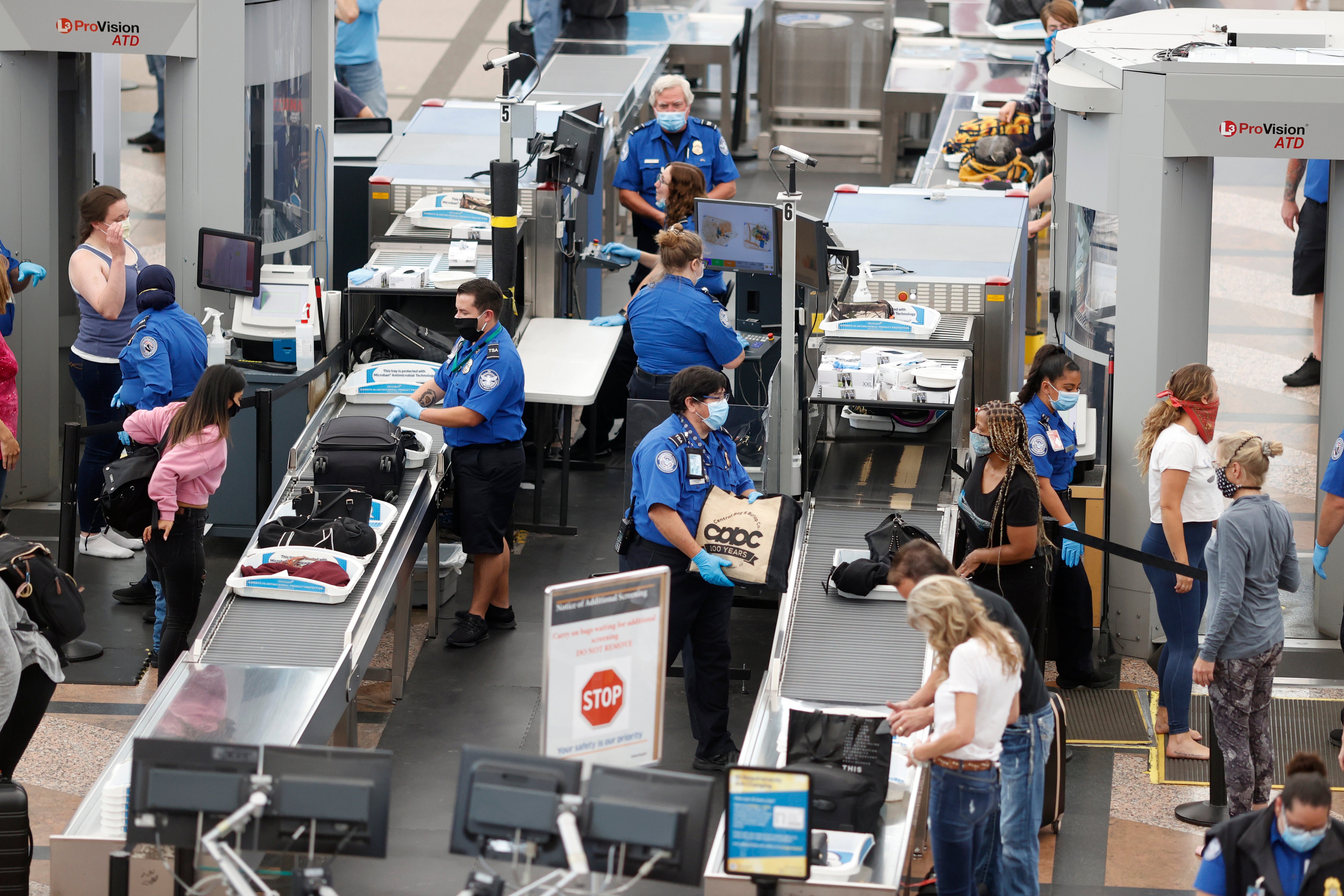Air travel pandemic milestone; 1 million passengers screened
The number of passengers screened for flights in the U.S. topped one million in a day for the first time since the coronavirus pandemic outbreak last March, but it’s still about 60% fewer air travelers than this time last year

Your support helps us to tell the story
From reproductive rights to climate change to Big Tech, The Independent is on the ground when the story is developing. Whether it's investigating the financials of Elon Musk's pro-Trump PAC or producing our latest documentary, 'The A Word', which shines a light on the American women fighting for reproductive rights, we know how important it is to parse out the facts from the messaging.
At such a critical moment in US history, we need reporters on the ground. Your donation allows us to keep sending journalists to speak to both sides of the story.
The Independent is trusted by Americans across the entire political spectrum. And unlike many other quality news outlets, we choose not to lock Americans out of our reporting and analysis with paywalls. We believe quality journalism should be available to everyone, paid for by those who can afford it.
Your support makes all the difference.The number of passengers screened in a single day for flights in the U.S. topped one million for the first time since COVID-19 infections began to spike last March.
The notable milestone, reached Sunday, signifies both the progress made since the darkest days of pandemic for the devastated U.S. airline industry, when fewer than 100,000 people were screened per day in April, and how far it still has to go.
The million plus passengers screened Sunday compares with 2.6 million on the same day last year, or roughly 60% fewer, according to the Transportation Security Administration.
The TSA said that the 6.1 million passengers at U.S. checkpoints the week of Oct. 12 through Oct. 18 was the greatest volume measured since the start of the pandemic.
Vacation plans and business trips were frozen in the spring as millions took shelter. With so little known about the virus, few wanted to board planes or walk through an airport even if they could.
Airlines received $50 billion in cash and loans from Congress in March on the condition that they held off on layoffs at least through October. Airlines are now warning of mass layoffs while lobbying Congress and the White House for another $25 billion to pay workers for the next six months.
The point at which Congress can deliver broader coronavirus relief before the November election is slipping away. The gap between what is being sought by House Speaker Nancy Pelosi and her Senate Republican rivals and President Donald Trump seems increasingly insurmountable.
Southwest Airlines which has never laid off employees in its roughly 50-year history, warned this month that it will cut pay for nonunion workers in January and that union workers must also accept less pay or face furloughs next year.
And while passenger numbers are increasing, no one knows if that trend will continue. Infections are spiking in the Midwest and stubbornly holding in place or edging higher in other parts of the country as colder weather settles in.